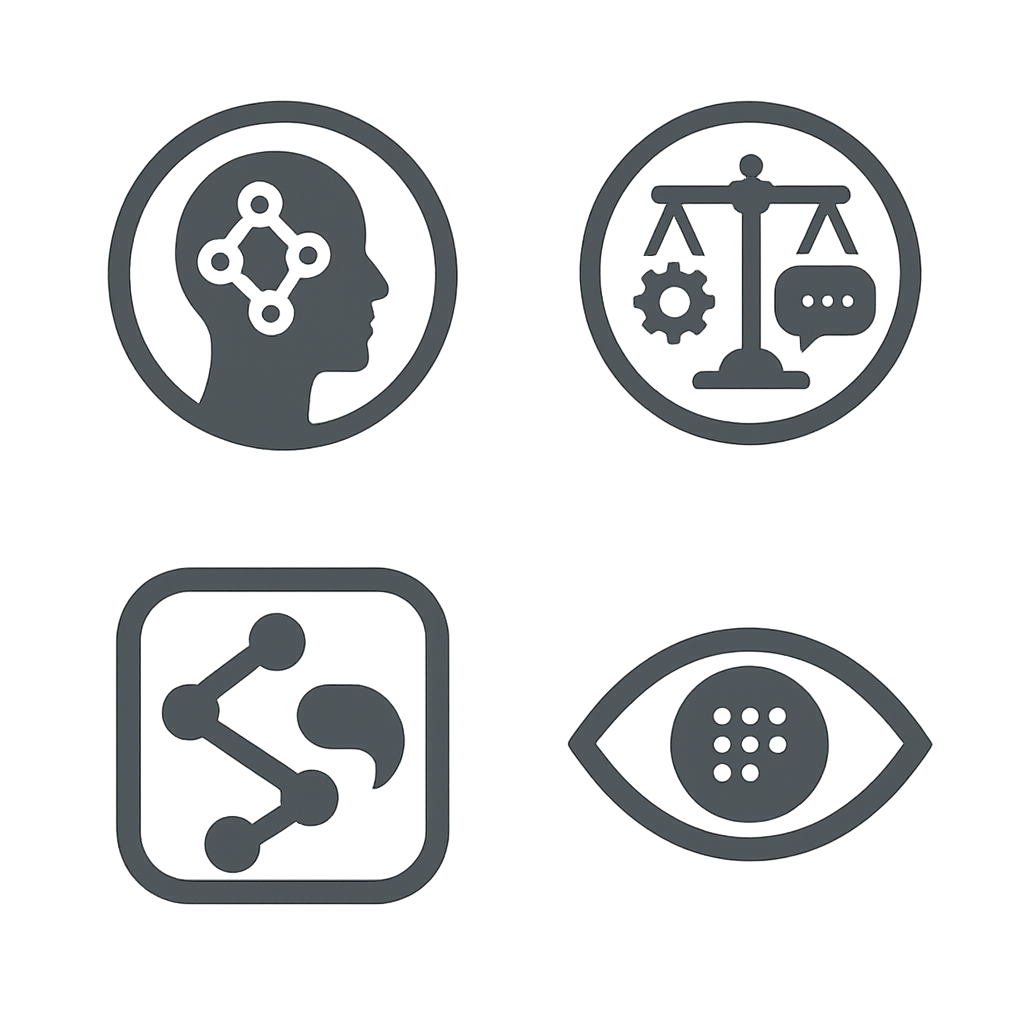I hear bell hooks asking whether AI deepens domination—or helps us build a culture of love, justice, and learning. They would bring an ethic of freedom from the classroom to the platform, demanding that design and governance confront what she famously named “imperialist white-supremacist capitalist patriarchy.”
Why hooks—why now?
hooks’s Teaching to Transgress centers “education as the practice of freedom,” a pedagogy that links critique with care; her “engaged pedagogy” insists on participatory, healing learning environments. Those same commitments travel to AI: participation, inclusion, and repair must be built into the systems that increasingly mediate everyday life.
Five hooksian lenses for AI
1) Name the system. Power hides in defaults, categories, and dashboards; naming intersecting oppressions is the first step toward transformation. For hooks, clarity about structure precedes liberation—so AI critiques must speak plainly about race, gender, class, and empire in data and deployment.
2) Love as a political ethic. In All About Love, hooks treats love as willful action—care, commitment, trust, responsibility—not sentiment. Designing for love means embedding dignity, consent, and accountability into product goals, not bolting them on as PR.
3) From margins to center. AI agendas often center the already-powerful; hooks urges us to reverse the gaze and start from those most affected. Evaluation must ask whether systems move people from margins to participation—or reproduce exclusion.
4) Pedagogy in the interface. Every interface teaches: it signals who belongs, how to speak, how to dissent. An “engaged” AI invites co-creation, explanation that educates (not mystifies), and real avenues to contest decisions.
5) The politics of representation. hooks’s early work on Black women and feminism exposed how media and theory erase or stereotype. Training data, labeling, and content policy must be audited for representational harm—and creators supported to tell their own stories.
Three quick applications
Education. Classroom AI should widen access to mentorship and feedback while protecting student agency; engaged pedagogy rejects surveillance-by-default and designs for dialogue, reflection, and healing after harm.
Public platforms. If recommendation engines reward spectacle over solidarity, a hooksian audit asks whose well-being is optimized—and whether communities at the margins gain voice and safety.
Care & social services. Eligibility, fraud, and risk models must be tested for intersectional harm, paired with human appeal routes and community governance; love as policy means remedy and restoration, not automated abandonment.
A hooks-inspired toolkit (practical)
- Standpoint review: Who was at the table? Document participation by affected communities before launch. (From margin to center.)
- Love-ethic check: For each feature, show how it enacts care, justice, and accountability—or explain why it exists without them.
- Representation audit: Sample training data and outputs for stereotype reproduction; fund counter-datasets owned by communities.
- Engaged pedagogy UX: Build explorable explanations, consentful defaults, and genuine contestation paths into the interface.
- Repair rituals: When harm occurs, practice public learning: name it, explain fixes, and compensate; don’t hide behind “the algorithm.”
Guiding questions
- Whose flourishing does this system measure—and whose is ignored?
- How does the design move people from margin to center?
- Where does the product practice love as a verb: care, accountability, and repair?
Literature & Links
hooks, b. (1994). Teaching to transgress: Education as the practice of freedom. Routledge. Teaching to Transgress (publisher).
hooks, b. (2000). All about love: New visions. William Morrow/Harper. All About Love (Open Library). • Context on renewed impact: AP News feature.
hooks, b. (1984/2015). Feminist theory: From margin to center. Routledge. Feminist Theory (publisher).
hooks, b. (1981/2015). Ain’t I a Woman: Black women and feminism. Routledge. Ain’t I a Woman (publisher).
hooks, b. (2000). “Imperialist white-supremacist capitalist patriarchy.” In talks and essays; see transcript via Media Education Foundation. Cultural Criticism & Transformation (transcript).


Leave a Reply